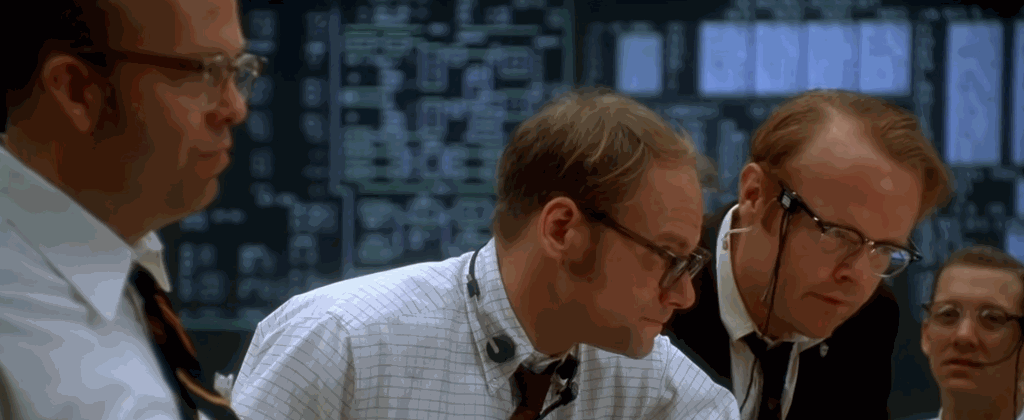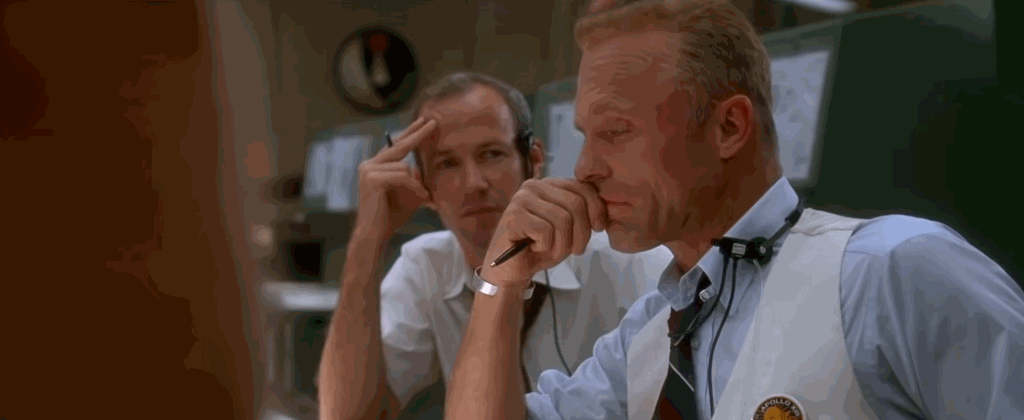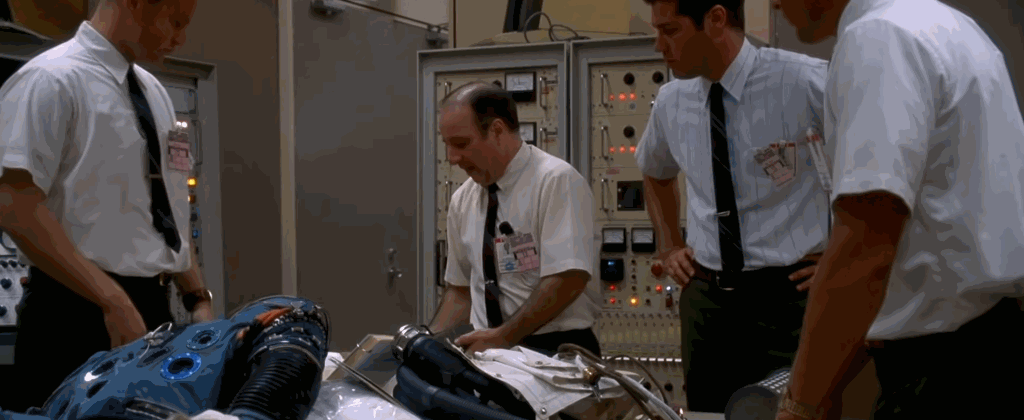March 05, 2024
I was once out with a team of software engineers who were talking about a challenging project, and one of them said, "It's our job to say what's impossible."
I couldn't stop myself from interrupting. I said wait a minute, that is not what our job is. I think I knew what he was really trying to say, but I saw the moment as an opportunity to challenge what I felt (and still feel) is a backwards view of what engineers are actually for.
At the time I think I said something like "The company we work for employs thousands of engineers. Do you think we need thousands of people to say what's impossible?"
So if that isn't what software engineers are for... what is?
To share my own personal answer to that question, I'll start by describing one of my favorite scenes from the movie Apollo 13.
The scene begins with some NASA staff members approaching Lead Flight Director Gene Kranz, played by Ed Harris, to inform him of a CO2 filter problem on the lunar module. The CO2 levels are at 8 and rising, they explain. If the levels go above 15 they will lead to impaired judgment, blackouts, and brain asphyxia for the astronauts on the Apollo 13 mission.
Kranz asks: "What about the scrubbers on the command module?" No luck: "They take square cartridges. The ones on the LEM are round."

Then, after a dramatic pause, the flight director delivers the inevitably quotable line: "Well, I suggest you gentlemen invent a way to put a square peg in a round hole... rapidly."

The film then cuts to a team of engineers entering a small room. "Okay people, listen up," says one of the lead engineers, as several boxes full of seemingly random items are emptied onto a table. "The people upstairs handed us this one, and we gotta come through. We gotta find a way to make this," he says—holding up a square cartridge—"fit into the hole for this"—holding a round cartridge—"using nothing but that"—gesturing to the pile of items on the table.
The next line we hear, muttered simply by one of the engineers as the camera gives us an overhead view of hands sorting the items on the table: "Okay, let's build a filter."

This scene beautifully captures what I personally love about engineering, and what I believe the job of engineers really is.
The job of an engineer is, given a goal and a set of constraints: figure it out. Figure out how to make it work, even when the real-world constraints make it seem hard. Especially then. The tougher the constraints, the seemingly more impossible the goal, the better.
Another way to think about it: if it's easy, if the solution is obvious, then what do you need engineers for?
Imagine the Apollo 13 scene were different: suppose the NASA staffers approached Kranz and told him about the CO2 issue, and when he asked "What about the scrubbers on the command module?" they all just said, "Oh, right! Those will work. We're so dumb!" No need for engineers.
It's only because the solution was not obvious, due to the constraints—square pegs, round holes—that Kranz needed engineers at all.
Would you like to build a computer in the shape of a perfect cube with 90 degree angles? Maybe you want to provide live search results to 40,000 users concurrently every second? Need to land a 200-ft, 500-ton rocket on a small ship in the middle of the ocean after returning from space?
You're going to need some engineers!
To be clear, I'm not saying engineers can solve any problem no matter the constraints. I have certainly encountered problems I was unable to solve with the constraints I was given. But I try to never say that something is impossible. I might say: "We haven't managed to figure that out yet," or: "The only solution we've been able to find so far would be very expensive."
The aspiration should always be to remain unintimidated by seemingly hard problems, and to know we can figure it out eventually. "Impossible", as far as I'm concerned, should be treated like a dirty word.
I love engineering because I love figuring things out. Every engineering project is like a puzzle, with a unique goal and a unique set of constraints—the team, the systems, existing infrastructure, available time, company policy, dependencies on other teams, the list goes on. I feel so privileged to have a career in engineering, because the world needs puzzles to be solved, and I love solving puzzles.
The job of engineers is not to say what's impossible; it's the opposite. At our best, engineers take what seems impossible and figure out how to get it done.
